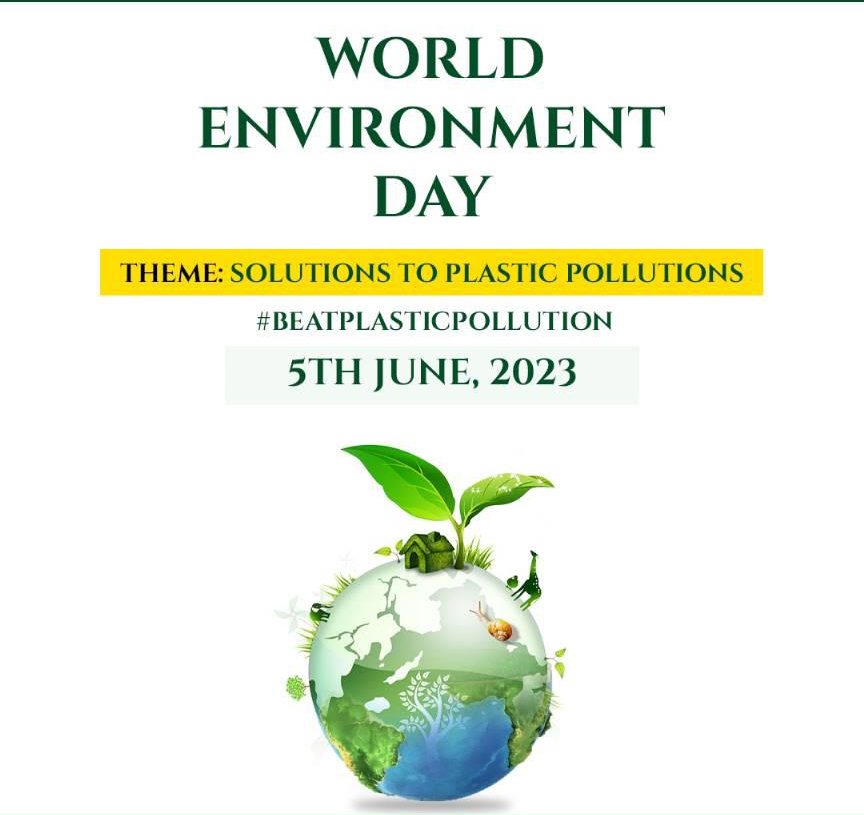Theme: Solutions to Plastic Pollution
#BeatPlasticPollution:
By:
Dr. Rosemary Anderson Akolaa, Lecturer in Gender and Development, Department of General Studies, School of Natural and Environmental Sciences (SNES), UESD, Somanya, E/R
The script sheds light on the impact of plastic pollution and the role of UESD in the fight against it.
On this year’s World Environment Day, the global community unites under the #BeatPlasticPollution campaign to address the devastation caused by plastic pollution and to investigate innovative solutions. Although the negative effects of plastic pollution are well known, it is essential to recognise the gendered aspects of this crisis. Plastic pollution has different effects on men and women, with women often bearing a disproportionate burden due to their responsibilities in waste management, caregiving, and community resilience. In this endeavour, the University of Environment and Sustainable Development (UESD), is at the forefront, employing gender-inclusive strategies to nurture sustainable solutions to combat plastic pollution and advance a more equitable future.
Effects of Plastic Pollution and Gender Disparities
Environmental degradation and human health are adversely affected by plastic pollution. The proliferation of plastic waste in our oceans and landfills endangers biodiversity, disrupts ecosystems, and discharges harmful chemicals into the environment. In addition, the gendered effects of plastic pollution cannot be overlooked. Women, particularly those in developing nations, are frequently at the forefront of refuse management, engaging in informal recycling and garbage collection. They encounter increased health risks due to exposure to hazardous materials, and their livelihoods are susceptible to plastic waste market fluctuations.
Solutions to Plastic Pollution and Gender Inclusivity
Given the intersectionality of plastic pollution and gender disparities, it is imperative that we devise gender-inclusive solutions. This philosophy is embraced by UESD, which promotes gender-inclusive strategies that empower women and encourage their participation in environmental initiatives. The University endeavours to create a more equitable and sustainable future by involving women in decision-making processes, facilitating their access to education and training, and offering leadership opportunities. Promoting women’s participation in waste management and recycling programs is a crucial aspect of generating solutions to plastic pollution. The young university intends to ensure that women are equipped to engage in sustainable refuse management practices by providing training and resources. Recognising the crucial role women play in caregiving and community resilience, UESD also encourages women to participate in educational campaigns and outreach initiatives to raise awareness about the negative effects of plastic contamination.
In addition, UESD collaborates with local communities to establish recycling centres and promote models of the circular economy. These initiatives not only decrease plastic waste, but also generate economic opportunities, especially for female entrepreneurs. The University promotes economic empowerment and social change by supporting businesses led by women that concentrate on recycling, upcycling, and the production of sustainable plastic alternatives.
As we observe World Environment Day under #BeatPlasticPollution, it is crucial that we adopt gender-inclusive solutions to combat the negative effects of plastic pollution. Incorporating gender perspectives into its initiatives, UESD set an illustrative example by ensuring that women play an active role in shaping a sustainable future. We can unleash the full potential of gender-inclusive solutions to combat plastic pollution if we promote women’s empowerment, provide education and training opportunities, and foster an environment that facilitates their participation.
Let us recognise, on this World Environment Day, not only the imperative need to combat plastic pollution, but also the gender disparities that exist within this crisis. By supporting initiatives similar to those of UESD, we can cultivate a more equitable and sustainable future for everyone. Let us unite under the
#BeatPlasticPollution campaign, empower women, and labour together to rid the world of plastic pollution.

